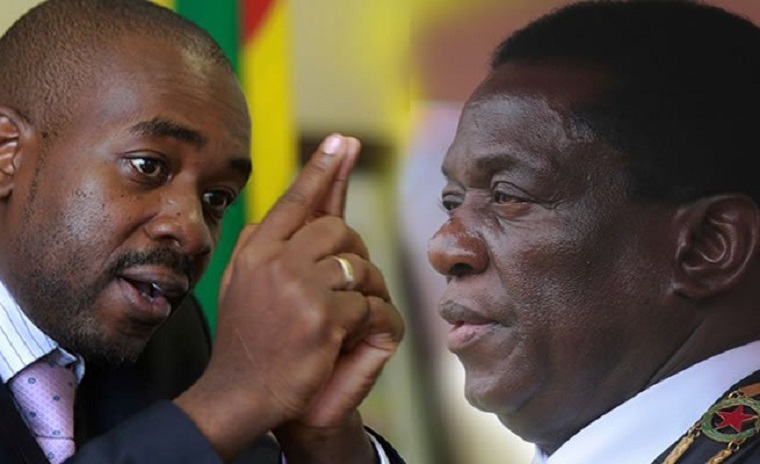 President Emmerson Mnangagwa sent a string of emissaries to convince MDC Alliance leader Nelson Chamisa to come to the negotiating table.
President Emmerson Mnangagwa sent a string of emissaries to convince MDC Alliance leader Nelson Chamisa to come to the negotiating table.
Chamisa said he sent them packing because they demanded that he accept the result of the July 2018 elections as a precondition for talks.
ZANU-PF hardliners have consistently said they are not interested in talking to the opposition party because an inclusive government would cost many of them their political positions and influence.
But sources said Mnangagwa had sent at least five church leaders to see Chamisa this month.
“If Chamisa gives in and admits losing the highly disputed and controversial polls, Mnangagwa will freely go to the negotiation table as the bigger man. It’s all about bargaining and power retention,” said a source.
Chamisa said he had given all the emissaries the same answer: he will not endorse what he still believes to be a corrupt election victory.
“Numerous respected clergymen have been to my doorstep. They came with Mnangagwa’s deal. I won’t take it because it does not represent the truth,” said Chamisa.
“We are committed to genuine dialogue but not publicity stunts and issues that don’t address the real problems.”
He acknowledged that with inflation running at 591%, health care in crisis, corruption rampant and food shortages leaving half the population hungry, the country needs a political solution, in which the MDC Alliance could play a key role.
The Mnangagwa charm offensive comes as former South African president Thabo Mbeki, invited to mediate by Mnangagwa, prepares to return to Zimbabwe next month after an initial visit in December.
Chamisa said he would tell Mbeki that Zimbabwe’s problems are primarily political. “The economy responds to the politics of the day,” he said.
“Soon after the election was stolen, the economy took a nosedive. That alone should tell you that the economy follows public policy, and right now two years after elections we still have a disputed political leadership.”
The opposition leader said the Southern African Development Community (SADC) should be playing a more active role in brokering a political deal.
“Zimbabwe is like a sick baby in the region. Its sickness is slowly affecting neighbours,” he said, pointing to the number of Zimbabweans implicated in crime in neighbouring countries.
Continued next page
(244 VIEWS)
